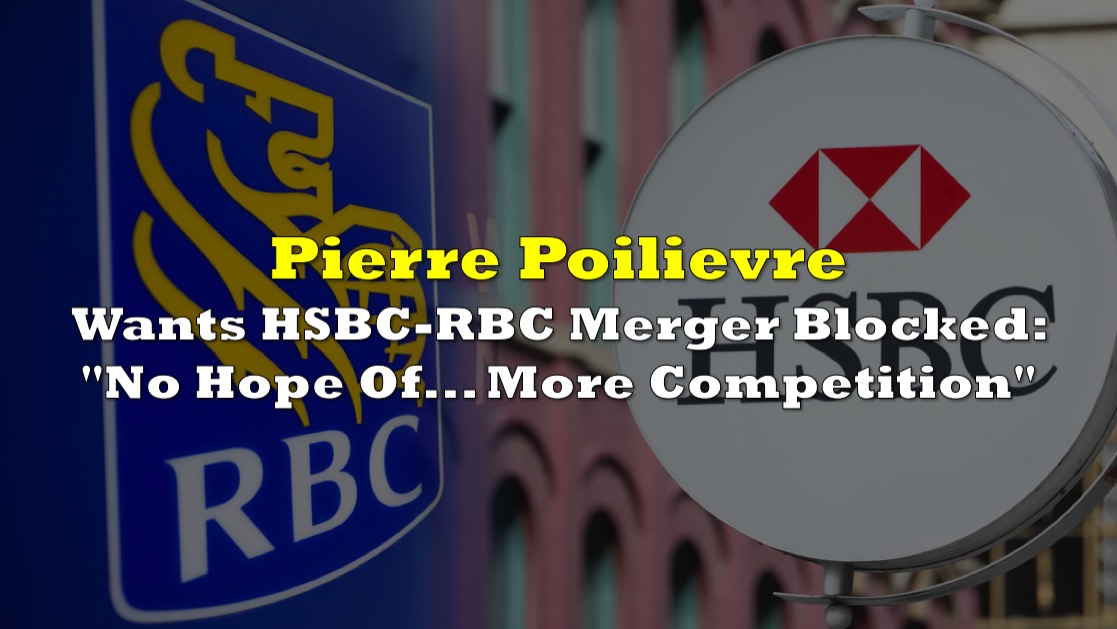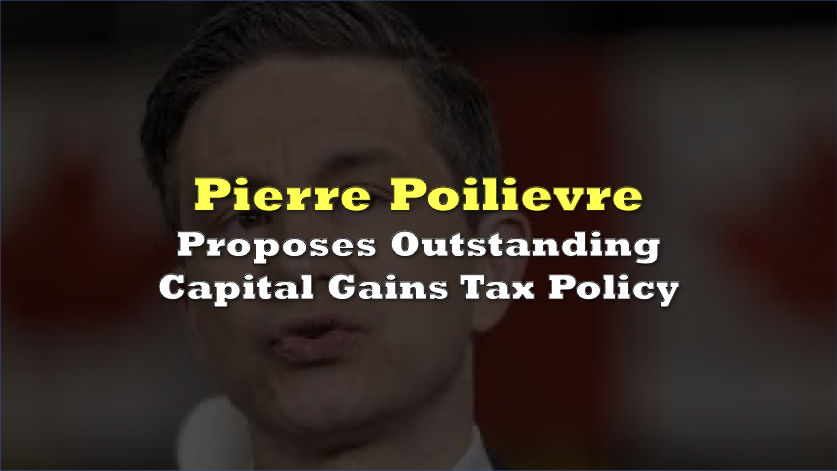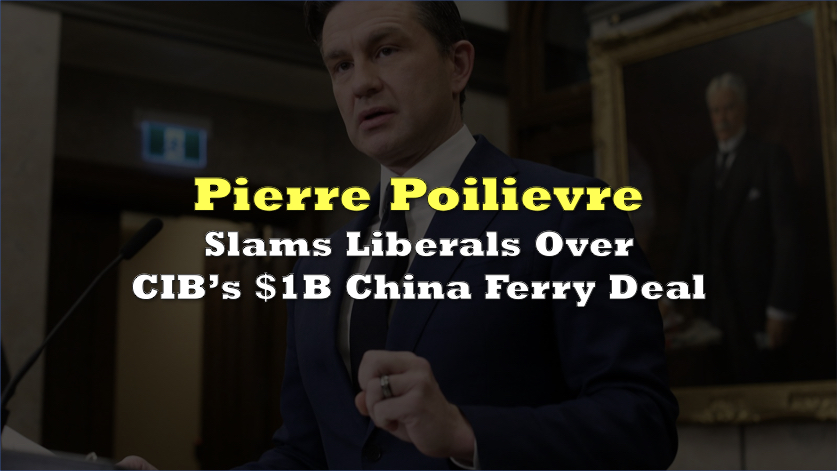Conservative Leader Pierre Poilievre is urging the federal government to rebuff the Royal Bank of Canada’s (RBC) proposed acquisition of HSBC Bank Canada, citing concerns that this move would diminish competition in the banking sector at a time when Canadian homeowners are grappling with exorbitant borrowing costs.
In an interview with The Globe and Mail on Thursday, Mr. Poilievre underscored that preventing this acquisition represents a tangible step the government could take to address the affordability issue. He articulated, “If the biggest bank in Canada simply buys up a growing smaller player, then there’s no hope of ever having more competition in Canadian banking. If you remove HSBC, then you’ll be removing downward pressure on lending rates.”
Poilievre did not elaborate on what would happen to HSBC Canada if Ottawa were to annul RBC’s deal, which was struck after HSBC Holdings PLC, the British banking giant, decided to divest its Canadian unit. Should RBC’s bid falter, it could prompt HSBC to restart the bidding process.
The Competition Bureau of Canada gave the green light to RBC’s acquisition of HSBC Canada in September, marking a pivotal step toward the largest domestic banking deal on record. This takeover would solidify RBC’s position in the market, bolstering its loans and deposits by tens of billions of dollars.
Canada’s major banks had been eyeing HSBC Canada for years, attracted by its prowess in commercial lending and mortgages. In October 2022, HSBC, based in London, put its Canadian subsidiary up for sale as part of a strategic review, offering competitors a rare opportunity to substantially expand their domestic operations via an acquisition. In recent years, HSBC has also streamlined its operations in other regions, such as Brazil, France, and the United States, reallocating resources to areas with greater growth potential.
RBC clinched the deal with a staggering $13.5-billion offer, the highest amount a Canadian bank has ever paid for a domestic competitor, at 2.5 times the tangible book value of HSBC Canada.
Andrew McGrath, a spokesperson for RBC, contended that the deal would preserve financial sector jobs in Canada and ensure a smooth transition for HSBC Canada’s clients. He stated, “HSBC Canada’s parent company has announced their decision to exit the Canadian marketplace, leading to uncertainty for HSBC’s 700,000 Canadian clients. We strongly believe that RBC’s proposed acquisition offers HSBC’s Canadian clients the best possibility for continuity and stability, while providing them with innovative made-in-Canada international banking solutions and advanced digital capabilities.”
In June, the federal Finance Department initiated a public consultation on the deal to gather feedback on its potential impact on the financial sector. The acquisition necessitates approval from Canada’s banking regulator, the Office of the Superintendent of Financial Institutions, and the final approval from the Finance Minister.
Many banking analysts anticipate the deal’s approval. In a note to clients in September, Canadian Imperial Bank of Commerce analyst Paul Holden remarked that there should not be any “significant hurdles” in securing additional regulatory endorsements.
Katherine Cuplinskas, a spokesperson for Finance Minister Chrystia Freeland, referred to a statement issued by the minister nearly a year ago when the plan was initially revealed. The statement affirmed, “The minister of finance’s decision on the acquisition will be informed by all required regulatory review processes, including those administered by the Office of the Superintendent of Financial Institutions and the Competition Bureau.”
The Liberal government is also facing pressure from the New Democratic Party (NDP) to oppose the merger. NDP MP Laurel Collins penned a letter to Ms. Freeland this month, urging her to halt the merger. The letter emphasized HSBC’s environmental leadership and alleged RBC’s association with environmental organizations as the world’s largest financer of fossil fuels.
In April, a report from a coalition of environmental groups revealed that RBC held the top spot as the world’s biggest fossil fuel financier. Other major Canadian banks were also ranked in the top 20 on this list. In December, HSBC committed to ceasing financing for new oil and gas projects.
Poilievre expressed his criticism of the Competition Bureau’s recent finding that the merger would not substantially diminish competition. He questioned how the Competition Bureau arrived at this conclusion, even though the deal reduces competition. He voiced support for reforming the Competition Act but doubted that the proposed changes in Bill C-56 currently before Parliament would address this specific situation.
He emphasized that the Finance Minister has the authority to block the merger and should exercise that power, saying, “There’s no question we need to reform the Competition Act to bring more choice and competition for consumers generally. In this instance, though, the Finance Minister has the power to block this merger, and she should use that power.”
Information for this story was found via The Globe And Mail and the sources mentioned. The author has no securities or affiliations related to the organizations discussed. Not a recommendation to buy or sell. Always do additional research and consult a professional before purchasing a security. The author holds no licenses.









